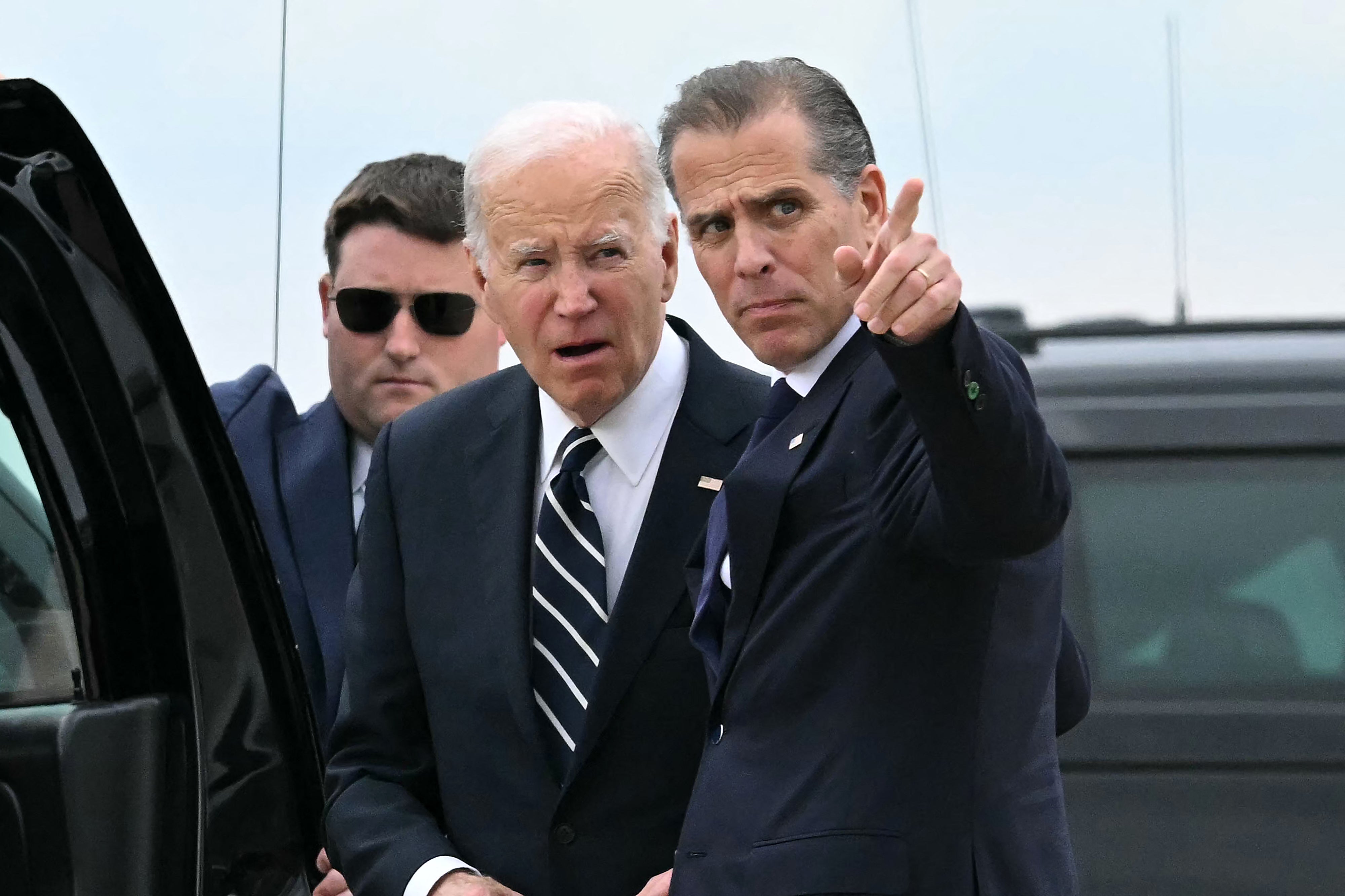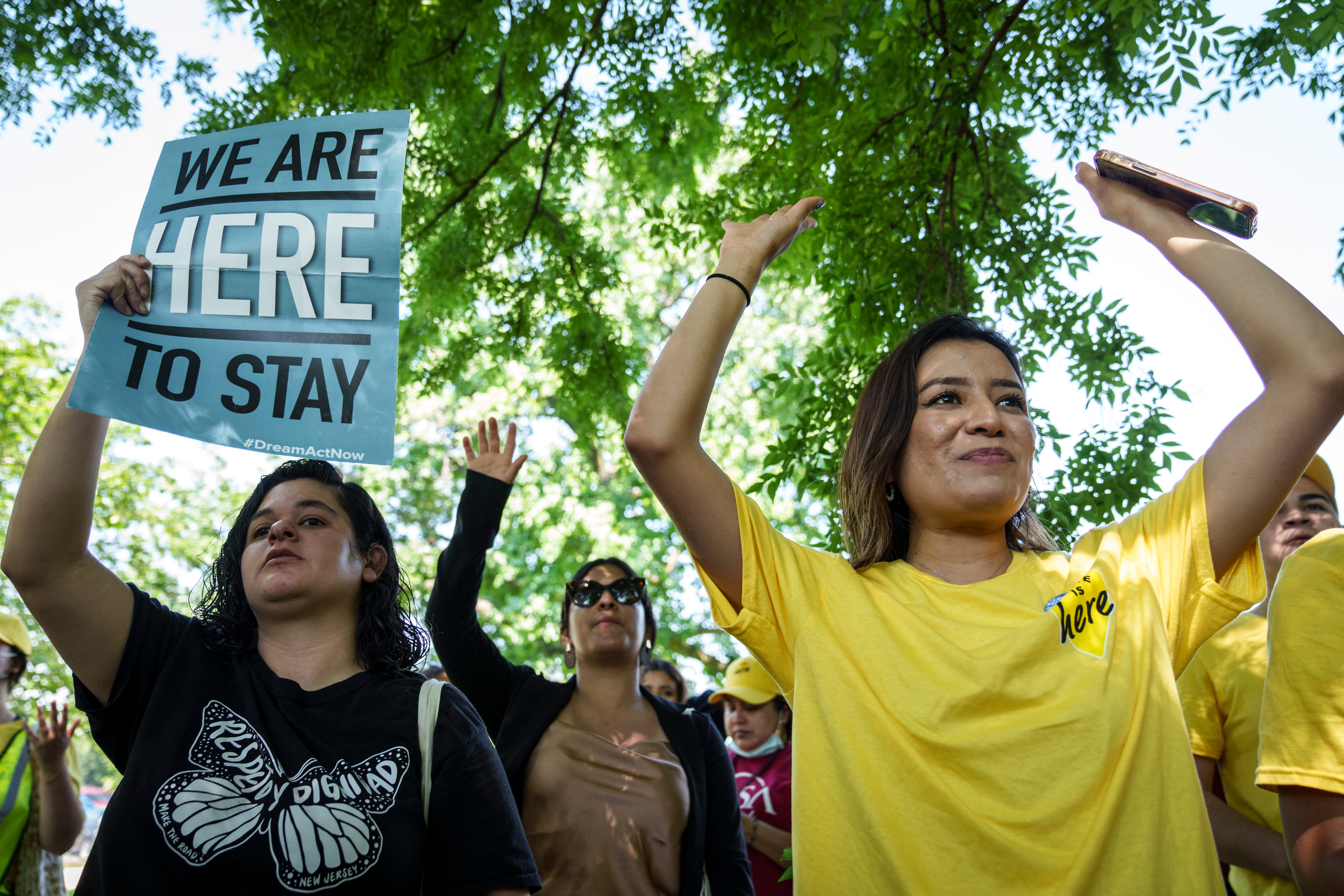
Is Joe Biden in his YOLO era? The pardon he issued for his son, Hunter, on Sunday certainly suggests it. Here’s what else he can — and can’t — do over his last few weeks in office.
With 47 days left until he cedes the presidency to Donald Trump, Biden is extremely aware of his lame duck status that grows lamer by the day.
He tried making light of the situation while speaking at Angola’s national slavery museum in Belas, Angola on Tuesday, at one point referring to his “short presidency” and at another telling audience members: “Ladies and gentlemen, as you know, I am in the final weeks of my presidency” before adding a laugh line: “You don’t have to clap for that.”
And his decision to issue that controversial pardon to his son — a stunning reversal from months of pledges not to do so — even further highlights the fact that his time in office is growing short. With just weeks to go until Trump’s inauguration and with no more elections to win or political battles to fight, Biden seemingly threw caution to the wind when deciding to grant his only surviving son a sweeping reprieve for any crimes committed over a ten-year period.

Biden aides have said that the president wants his administration to finish strong by finalizing the work they’ve done over the last four years. Aboard Air Force One en route to Africa on Monday, White House Press Secretary Karine Jean-Pierre told reporters that the president intends for his staff to use their remaining time to make each day “an important day” and focus on what they can do to make Americans’ lives better.
But with Congress set to spend their remaining time this year pushing through judicial nominees and pushing through a few must-pass pieces of legislation, Biden has no more political capital to spend and little more than his pen and phone to get anything done before he closes the book on a full half-century in public life.
Yet at the same time, he might still have levers he can pull to make some things happen before he leaves the Oval Office for the last time.
Some things Biden can do himself while he still has the powers of the presidency:
Pardons, pardons, pardons
Since he took office in January 2021, Biden has only granted 25 pardons and 132 commutations of sentences (which reduce or eliminate punishment but don’t remove penalties for having committed a crime). That’s a far cry from the 144 pardons granted by Trump over his first four years or the 212 pardons issued by Barack Obama, the 189 granted by George W Bush, or the comparatively whopping 396 pardons issued during Bill Clinton’s eight years in the White House.
But before them, pardons were even more common and extensive. During his single four-year term, Jimmy Carter granted 534 pardons, including a general pardon for anyone who illegally evaded the military draft during the Vietnam War. His predecessor, Gerald Ford, issued 549 over the two years and five months he served in the White House after the resignation of Richard Nixon, who was the recipient of one of them.
For his part, Nixon issued 863 pardons during the nearly six years he had in office before he was ousted over Watergate.
Why have Biden, Trump and their other predecessors over the last few decades been so stingy with pardons? Process and politics.
In the case of Hunter Biden — or Trump pardon recipients such as Roger Stone, Steve Bannon, Charles Kushner, Michael Flynn or Paul Manafort — their pardons came as personal favors, direct from the Oval Office. The president can do that because his pardon power is pretty much absolute. But everyone else has to get in what can be a very, very long line.
The way one normally obtains a presidential pardon requires an applicant to have completed their sentence and waited five years before asking for one. Then, the Justice Department — the department responsible for convicting applicants to begin with — conducts an investigation and recommends whether to grant or deny the request. This can take years.
Presidents have also become more risk-averse in granting pardons over the years because of the potential for political blowback. Moreover, if a pardon recipient commits new crimes after being pardoned, the president who pardoned them — or their political party — could take the blame.
President Biden did issue a blanket pardon for all federal convictions for simple marijuana possession in violation of federal or District of Columbia law. Some activists want him to go further and issue more pardons for nonviolent marijuana-related offenses.
New York Representative Alexandria Ocasio-Cortez on Tuesday told The Independent she wants Biden to issue “far, far, far more communications and clemencies” than he’s issued thus far because his administration’s output has been a “record low number.”
“What I would hate to see is President Biden leaving office with less commutations and clemency issuances than even President Trump provided,” she said.

Three other House Democrats — Representatives Ayanna Pressley, Mary Gay Scanlon and James Clyburn — sent Biden a letter last month asking him to grant sweeping pardons to a range of federal convicts with an eye to “reunite families, address longstanding injustices in our legal system, and set our nation on the path toward ending mass incarceration.”
“Now is the time to use your clemency authority to rectify unjust and unnecessary criminal laws passed by Congress and draconian sentences given by judges. The grant of pardons and commutations and the restoration of rights will undoubtedly send a powerful message across the country in support of fundamental fairness and furthering meaningful criminal justice reform,” they said.
Extending status for immigrants from certain countries
One area where Biden still holds sway for now is on whether or not to grant or continue allowing migrants from disaster-ridden places to continue to have legal status and work authorization in the United States.
A 1990 law signed by then-president George HW Bush allows the president (through the Secretary of Homeland Security) to grant immigrants in the United States the ability to live and work legally if their home countries aren’t safe because of armed conflict, natural disasters, or other “extraordinary and temporary conditions.”
Currently, people from Ecuador, Nicaragua, and El Salvador enjoy Temporary Protected Status in the US. Under Biden, a Trump-era decision to end TPS for Salvadorans was rescinded, but a group of Latino senators on Tuesday — Catherine Cortez Masto of Nevada, Alex Padilla of California, and Ben Ray Lujan of New Mexico — sent him a letter asking him to continue TPS for people from those countries with “meritorious cases,” citing “horrific levels of violence that has only surged in recent years” in Ecuador, along with the oppression of the Ortega regime that has controlled Nicaragua for decades and “political and environmental conditions” in El Salvador.
Speed up processing for Dreamers
Since 2012, an Obama-era program called Deferred Action for Childhood Arrivals has allowed certain people who were brought to the US illegally as children to receive protected status and work permits.
The program, called DACA for short, has been a target of conservatives since the day then-president Obama signed a memorandum authorizing it with the intention of it being a stopgap measure until Congress could pass legislation to protect “Dreamers” — people without legal status who’ve lived their entire lives in the US because they were brought here by their parents.

Over the 12 years it has existed, DACA has been the subject of multiple court challenges. It was also ruled to be unlawful by the federal judge overseeing a lawsuit seeking to overturn the program brought by multiple Republican state attorneys general. But the judge allowed DACA recipients who’ve been enrolled in the program to continue receiving protection, provided that they renew their applications at regular intervals.
In their letter to Biden, Cortez Masto, Padilla and Lujan asked him to process renewals “as expeditiously as possible” to avoid the possibility that the new Trump administration would slow-walk the applications. They also asked that he order US Citizenship and Immigration Services to “allow all DACA recipients’ status to extend for the maximum time possible.”
Empty federal death row
According to the Death Penalty Information Center, there are currently 40 people on the federal death row at the United States Penitentiary in Terre Haute, Indiana (for men) and in Fort Worth, Texas at Federal Medical Center Carswell (for women).
There haven’t been any federal executions since January 16, 2021, when Dustin Higgs became the last to be put to death in a spate of lethal injections administered at the end of Trump’s first term. Before that, only three people had been executed since the federal death penalty was restored by Congress in 1988.
Merrick Garland imposed a moratorium on executions starting in July 2021, and a review of policies and procedures he ordered at the time remains ongoing. But Biden, who has long expressed personal opposition to the death penalty, could wipe clear the rolls of federal death row by commuting each of those prisoners’ sentences to a term of life imprisonment.

Ocasio-Cortez, the New York congresswoman, said Biden should act while he can to prevent Trump and his incoming administration from restarting the federal execution chamber.
She told The Independent there are “many Americans who are on death row who should be taken off death row, and who are facing the end of their lives if this president does not act.”
And one more pardon — for Trump
Biden could issue another unprecedented pardon to the man he defeated in 2020.

Trump has been facing two separate federal indictments — one for his alleged unlawful retention of national defense information and obstructing a federal probe into how he had retained a wide range of classified documents after leaving office; and a second set of charges for his role in attempting to overturn the 2020 election.
Utah Senator Mitt Romney, no fan of the president-elect, urged Biden to erase the charges by pardoning Trump during an interview with MSNBC in May. Speaking to anchor Stephanie Ruhle, Romney said pardoning Trump would make Biden “the big guy” and Trump “a little guy”.
“You may disagree with this, but had I been President Biden, when the Justice Department brought on indictments, I would have immediately pardoned him,” he said.







